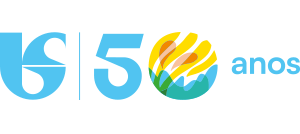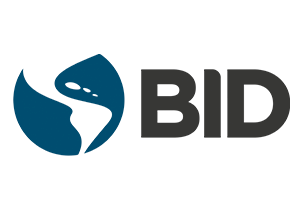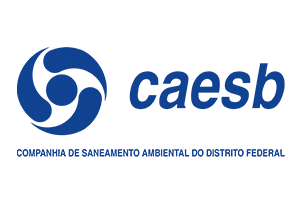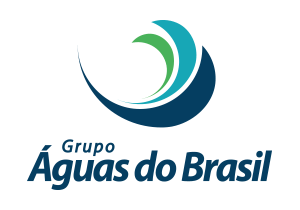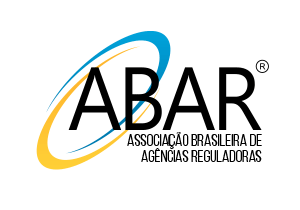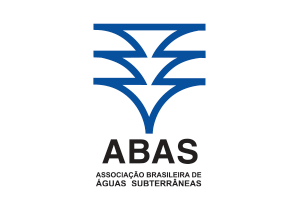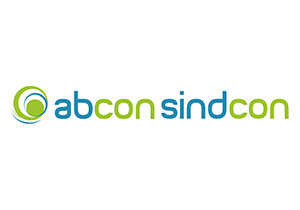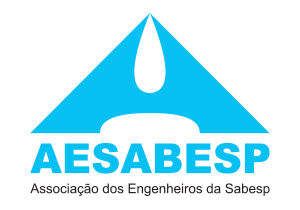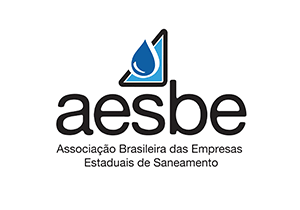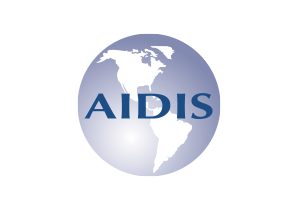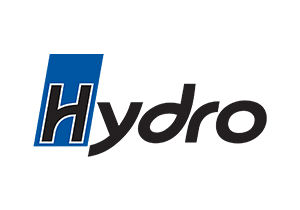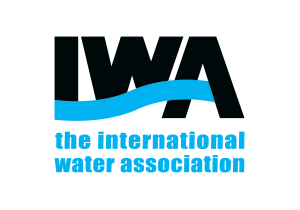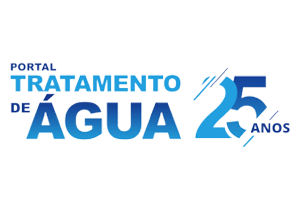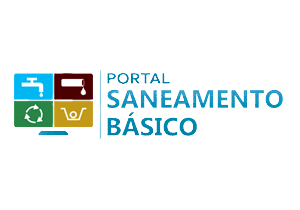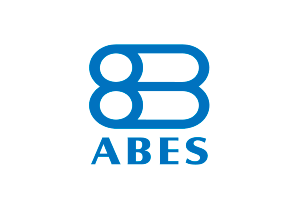-
June 03
Monday -
June 04
Tuesday -
June 05
Wednesday -
June 06
Thursday -
June 07
Friday
10:30
Opening ceremony
Guests:
- Loïc Fauchon – President of the World Water Council
- Jose Luis Inglese – President of AIDIS – Inter-American Association of Sanitary and Environmental Engineering
- Tom Mollenkopf – President of IWA – International Water Association
- Franz Rojas – Coordinator of the Water Agenda and Vice-President of Social Development at the Development Bank of Latin America (CAF)
- Saroj Kumar Jha – Global Director for Water at the World Bank
- Leonardo Picciani – National Secretary of Environmental Sanitation – Ministry of Cities
- Filipe Sampaio – Director of ANA – National Water and Basic Sanitation Agency and representative of the Latin American Water Forum
- Natália Resende – Secretary of the State of São Paulo for the Environment, Infrastructure and Logistics
- André Salcedo – Chief Executive Officer of the Basic Sanitation Company of the State of São Paulo – Sabesp
- Tiago Pena Pereira – Senior Specialist in Water and Sanitation at IDB – Inter-American Development Bank
Moderator: Alceu Guérios Bittencourt – National President of ABES
10:45
BWW Connection
12:15
Session 2.1 - Transforming sustainability: new frontiers in expanding and optimizing wastewater treatment
Theme 2 – Sewage Treatment – Sustainable Wastewater Treatment Plants
The aim of this session is to shed light on a highly strategic subject for companies operating in the sanitation sector, whether national or international, which is the treatment of sewage. We will bring distinct approaches that will encompass the dissemination of knowledge, focusing on the process of optimization, retrofit and expansion of treatment plants, facing the challenge of Universalization of sanitation services. This Universalization will be enhanced if associated with the concepts of Circular Economy, bringing the transformation of waste from the treatment process into resources that will return to society, making it increasingly sustainable regarding the use of natural resources. This strategy can be fundamental to guarantee the sustainability and efficiency of processes, both in optimizing the use of materials and the return to the environment. We will have in this session a more detailed approach to the entire treatment process, with recognized methodologies, such as process auditing, where each treatment stage is deeply evaluated, seeking significant reductions, both in CAPEX and OPEX, and enhancing the results obtained, both in the quality of the final effluent and for the by-products to be used in the Circular Economy. The intensification/optimization of processes will allow doing more with less, thus achieving a pillar of the Circular Economy, which is the reduction of the use of unnecessary resources, also reducing the need for capital investment and operating and maintenance costs.
Speakers:
- Daniel Nolasco – Vice-President of IWA – International Water Association
- Sudhir Murthy – CEO of NEWhub Water Corporation
- Christoph Platzer – Managing Partner of Rotary of Brazil
Moderator: Marcelo Miki – Engineer of the Departament for the Implementation of Research, Projects Development and Innovation at Sabesp and mamber of ABES Sewage Treatment Thematic Chamber
13:30
BWW Connection
15:00
Session 4.1 - Social Regulation: The Role of Regulatory Agencies
Theme 4 – Regulation
In this session, we will explore the complex challenges faced in the social regulation of water and sanitation services, with a specific focus on equitable access in rural and informal areas. While access to basic sanitation (potable water and sewage) is recognized as a fundamental human right, the reality in many parts of the world is marked by significant disparities. According to various global indicators, access to water is unequal between urban centers and rural or low-income regions within urban areas.
Meeting the goal of universal access to water and sanitation services in Brazil by 2033, according to the Basic Sanitation Regulatory Framework, the importance of the role of regulatory agencies in achieving full universalization, leaving no one behind, is recognized. This session will aim to present and discuss the responsibility and challenges that Regulatory Agencies face in various regions of the world to overcome barriers hindering universal access, so that their actions contribute to the effective universalization of water supply and sanitation services, with special emphasis on rural areas, informal settlements and low-income communities.
Speakers will present innovative solutions and best practices aimed at overcoming challenges and promoting social inclusion and sustainable development. Additionally, collaborative strategies involving governments, civil society organizations, the private sector and local communities will be discussed to ensure that everyone has access to basic water and sanitation services. This session aims to contribute to a general reflection on the challenges of universalizing basic sanitation services.
Speakers:
- Yvonne Magawa, Executive Secretary at Eastern and Southern Africa Water and Sanitation Regulators Association – Zambia
- Jaime Melo Baptista, Chairman of the Board of Directors – Lis-Water – Portugal
- Ximena Quiroz Pita, Specialist in Economic Affairs at SUNASS | Stakeholder Relations – Peru
- Cíntia Leal Marinho de Araujo, Superintendent of Basic Sanitation Regulation at ANA – National Water and Basic Sanitation Agency – Brazil
Moderator: Marisa Guimarães, Coordinator of the ABES Regulation and Tariff Thematic Chamber
15:15
BWW Connection
16:45
Session 3.1 - Advancements in water reuse: technologies and policies for sustainable water management
Theme 3 – Circular Economy and Nature-Based Solutions
This title on water reuse will be addressed as an important alternative both for the final disposal of treated sewage effluents and for the diversity of the water matrix, especially in regions of scarcity. Thus, there will be a discussion on the context of water resources and sanitation management, aiming at reuse practices seen as a solution, especially in two situations: in areas suffering from water scarcity due to climatic conditions, such as the Semi-Arid region; and in regions where their bodies of water have difficulty in maintaining water quality requirements when receiving effluents, even if treated. It will also seek to draw reflections on international experiences, in the search for regulatory understanding since in Brazil, in general, it is incipient and without the definition of water quality standards. This scenario, together with the lack of knowledge and engagement, prevents more promising advances.
Speakers:
- Anabela Rebelo, senior officer at the Portuguese Environment Agency – Portugal
- Pedro Simon, technical director at ESAMUR – Empresa das Águas de Murcia – Spain
Discussants:
- Eduardo Pedroza, New Business Manager at GS Inima Industrial – Brazil
- Leonor Amaral, professor at the Faculty of Science and Technology at Universidade Nova de Lisboa – Portugal
- Marcelo da Fonseca, general director of IGAM – Minas Gerais Water Management Institute – Brazil
Moderator: Ana Silvia Santos, founder and CEO of Water Reuse Inastitute – Brazil
10:30
Session 1.1 - Unified solution: redefining the vision of connections to regular sewage and sanitation networks in vulnerable areas
Theme 1 – Social inclusion and universal access
This title proposes a cohesive and comprehensive approach to overcoming sanitation challenges in vulnerable communities, focusing on solutions that unite technical knowledge, innovation, financial aspects and community engagement. “Unified Solution” emphasizes an integrated and holistic strategy that aims not only to implement effective sanitation infrastructure but also to promote sustainable changes that redefine the quality of life in the most vulnerable areas. By opting for “Redefining,” a new perspective on sanitation is suggested, going beyond conventional solutions to positively impact the social and environmental fabric of these communities.
Speakers:
- Édison Carlos, Director of Sustainability at Aegea and President of the Aegea Institute – Brazil
- Eduardo Pelaes Ortiz, Commercial Professional at the Home Offer Unit/Public Companies of Medellin – EPM – Colombia
- Trinah Kyomugisha – Environmental Health Scientist at the Ministry of Water and Environment, Uganda
- Jay Bhagwan, IWA Non-sewered Sanitation SG Chair – South Africa
Moderators:
- Juliana Almeida Dutra, Project Director at Deep and Coordinator of the ABES Service Provision Thematic Chamber
- Marina de C. Rodrigues, Sustainability Coordinator at Aegea Saneamento and Coordinator of the UN Global Compact Water and Ocean Action Platform in Brazil
10:45
BWW Connection
12:15
Session 5.1 - Technologies applied to loss reduction management
Theme 5 – Efficient management
This session presents new technologies for identifying leaks, with the aim of increasing productivity and assertiveness in locating, thus reducing the average duration of non-visible leaks. In recent decades, the most used method is acoustic, which has technical limitations, in addition to requiring a lot of time to inspect 100% of the distribution network. Another important point is the analysis of the pipelines, an essential part of the supply systems which require monitoring and inspection, in order to guarantee their integrity throughout their useful life.
Speakers:
- Nicolas Caradot, head of the “Smart City and Infrastructure” group – Kompetenzzentrum Wasser Berlin (Germany)
- Adriano Camino, managing partner at Nortech – Brazil
- Gustavo Valverde, Senior Project Manager At Xylem (Peru)
- Nivaldo Rodrigues da Costa Junior – Operational Development Superintendent at Sabesp
Moderator: Luiz Roberto Pladevall – Managing Partner of CPS Engenharia e Soluções and President of ABES-SP
13:30
BWW Connection
15:00
Session 6.1 - International Cooperation and Technical Assistance in the Water Sector
Theme 6 – International cooperation
International cooperation and technical assistance in the water sector increasingly demonstrate the growing importance of greater access and exchanges between developing countries, beyond the traditional flow of assistance from developed countries. There is great potential for exchanges within Latin America and the Caribbean, as well as between this subcontinent and Africa and Asia. Also, in the relationship between developing and developed countries, what is practiced in the former is growing in importance because they are where the frontier of new technologies expands the most, as these are where the major challenges lie. The session will discuss concepts and experiences of cooperation and technical assistance, highlighting the perspectives of multilateral agencies and developing countries.
Speakers:
- Gustavo Saltiel – Global Leader for the Sanitation Sector for the World Bank
- Gustavo Mendez – Water and Sanitation Sector Coordinator for IDB Southern Cone Countries
- Agustin Alonso – Project Coordinator at the Development Bank of Latin America CAF
Moderator: Marcel Costa Sanches – Secretary General of ABES and Superintendent of Regulatory Affairs at Sabesp
15:15
BWW Connection
16:45
Session 7.1 - The challenge of universal sanitation from an investment perspective: how to leverage resources to achieve the goals of the new Brazilian legal framework
Theme 7 – Financing of the sanitation sector
This panel highlights the various challenges in achieving sanitation universalization from the perspective of mechanisms, instruments, models and forms of financing. Strategic issues for the sector will be addressed and discussed, covering at least two dimensions: (i) national and international experiences, discussing best practices and lessons learned in resource mobilization and operationalization, considering recent PPPs, concessions, performance contracts, privatization processes, etc., and the innovations, progress, lessons learned, and main difficulties encountered; and (ii) the instruments and mechanisms used to leverage investments, ensure credit, and/or avoid or mitigate contractual, political, fiscal, exchange rate, and monetary, economic-financial, regulatory and operational risks, which have compromised the feasibility of implementing and operating projects. In both dimensions, the roles of national or multilateral financing agents (World Bank, IDB, CAF, JICA, NDB, BNDES, CEF and private banks, among others), public actors and private participation, recent movements of international investment funds and also regulators, planners, managers and service providers will be highlighted, providing a clear and broad view of the various options and alternatives for the desired leap in investments required for the universalization and improvement of efficiency in the provision of water supply, sanitation, stormwater management, and solid waste management services.
Speakers:
- Otaviano Canuto, Senior Fellow at the Policy Center for the New South and Nonresident Senior Fellow at The Brookings Institution
- Tiago Pena Pereira, Senior Specialist in Water and Sanitation at IDB – Inter-American Development Bank
- Julius Sem, Professor at the London School of Economics (LSE) and University College London (UCL) – England
- Christian Borja Vega, Senior Economist at the World Bank
Moderator: Luis Eduardo Grisotto, Coordinator of the Technical Chamber of Water Resources at ABES-SP and Director of Cobrape
10:30
Session 8.1 - Monitoring and forecasting systems for critical events
Theme 8 – Environment climate change and water security
Adaptation measures are fundamental elements for reducing the impact on people and the economy during the occurrence of extreme hydrological events, especially droughts. This session should discuss topics such as the importance of expanding supply with the implementation of new infrastructure, redundant structures, the use of groundwater, conflict management, rational water use and contingency plans. Examples such as the drought that affected the Metropolitan Region of São Paulo in 2014/2015, South Africa at the same time, and some regions of the United States will be highlighted. The idea is to focus on the solutions adopted as adaptation measures in order to bring the greatest benefit with the lowest risk to populations.
Speakers:
- Alessandra Couri – Coordinator of the Situation Rooms of the National Water and Basic Sanitation Agency (ANA) – Brazil
- Anderson Ruhoff – Adjunct professor at the Hydraulic Research Institute – IPH/UFRGS – Brazil
- Russ Schumacher – Professor and Climatologist at the State of Colorado – United States
Moderator: Eduardo Mendiondo – Scientific Coordinator of the São Carlos School of Engineering at the University of São Paulo (EESC-USP)
10:45
BWW Connection
12:15
Session 2.2 - Beyond conventional: advanced technologies and circular economy in sewage treatment
Theme 2 – Sewage Treatment – Sustainable Wastewater Treatment Plants
We will address the use of cutting-edge technologies to achieve the quality of the final effluent from sewage treatment plants, evaluating the increased benefits and seeking alternatives that require less energy and chemical consumption, ensuring more significant environmental results. The expansion and operation of treatment plants, bringing concepts of optimization and intensification/optimization of processes, incorporation of circular economy and technologies aimed at greater sustainability of processes will demand significant investments and professional training, in addition to society’s awareness. Technological evolution for sewage treatment has been significant in recent years, through more information, technologies and technical training of professionals. We will discuss sewage treatment technologies and the choices of the best alternatives, based on each specificity. Approach of technologies already tested by operational areas, seeking operational process safety. It is essential to assess the need for small sewage treatment plants, considering the new challenges presented by the Legal Framework for sanitation.
Speakers:
- Jaime Barba Sevillano – CEO Idrica/Aguas de Valencia – Spain
- Rodrigo de Freitas Bueno – Professor at the Universidade Federal do ABC (UFABC)
Moderador: Nivaldo Rodrigues da Costa Jr. – Operational Development Superintendent at Sabesp
13:30
BWW Connection
15:00
Session 3.2 - Strategic solid waste management: paths to efficiency and sustainability
Theme 3 – Circular Economy and Nature-Based Solutions
In this session, relevant issues for the current challenge of Integrated Solid Waste Management will be addressed, as we currently experience them: changes in Legislation in Brazil regarding Basic Sanitation affect all areas of the Sector, especially regarding Solid Waste Management; many challenges still need to be faced, among them: a) eradication of open dumps (in perpetual deadline extensions); b) implementation of selective collection systems; c) effective discussion of reverse logistics models; and d) Public-Private Partnerships (PPPs) and Investments. Therefore, it is necessary to reflect on and exchange experiences that have been adopted, both in Brazil and internationally. This can promote strategies to fill gaps still existing with those previously described, and thus achieve what all society needs: the universalization of services with adequate efficiency.
Speakers:
- Rui Cunha Marques – Consultant at the World Bank and Full Professor at Universidade Lusófona, Portugal
- Marcel Szantó Narea – Professor at the Pontifical Catholic University of Valparaíso – Chile
- Paola Cofré – Head of the Circular Economy and Waste Area at SEREMI RM – Ministry of the Environment (Chile)
Discussants:
- Samanta I. S. Tavares de Souza – Undersecretary of Sanitation and Water Resources of the Secretariat of Environment, Infrastructure and Logistics of the State of São Paulo
- Manoel Renato Machado Filho – Secretary of Urban and Social Infrastructure at SEPPI – Special Secretariat of the Investment Partnership Program/Civil House of the Republic
Moderator: Josivan Cardoso Moreno – Secretary General of the ABES National Quality Committee and Manager of CREA-RJ
15:15
BWW Connection
16:45
Session 4.2 - Sanitation Regulation: Transition from Discretionary to Contractual Regulation and its Relationship with Service Delivery Models
Theme 4 – Regulation
The session will explore the pathways of regulation in the sanitation sector, focusing especially on the evolution from discretionary regulation to contractual regulation. With the recent panorama of legislative changes and the growing emphasis on service efficiency and quality, the transition to contractual regulation has become a reality, but it still generates discussions about the transition process and the reduction of flexibility found in discretionary regulation.
During the session, we will explore the fundamentals of discretionary regulation, its strengths and limitations, and how this approach is making way for a contractual model. Additionally, the session will present the interaction between regulatory models and different service delivery systems: how contractual regulation relates to concession models, public-private partnerships (PPPs), and other arrangements, and how these interactions shape sanitation service delivery in different contexts.
Throughout the session, practical cases of privatization experiences worldwide and the challenges faced in different regions will be presented. This will provide participants with a comprehensive view of the complexities involved in sanitation regulation and allow for the exchange of insights and best practices among sector experts and professionals. This session will be an enriching opportunity for all involved, bringing together experts, regulators, sector professionals and other stakeholders for an enlightening discussion on the future of sanitation regulation and its relationship with service delivery models.
Speakers:
- Ted Kury – Director of Energy Studies – Public Utility Research Center (PURC) – University of Florida – USA
- Alejandro Bontes – Partner and Executive Director of INECON S.A. – Chile
- Frederico Turolla – Founding Partner of the consultancy Pezco Economics
Moderator: Luiz Antonio de Oliveira Júnior – Deputy Coordinator of the ABES Regulation and Tariff Thematic Chamber and Superintendent of Economic-Financial and Accounting Inspection at Arsesp
10:30
Session 1.2 - Leveraging the future: models and financing for effective rural sanitation
Theme 1 – Social inclusion and universal access
This session highlights the importance of discussing and implementing innovative models and effective public policies focused on rural sanitation financing. “Leveraging the Future” suggests a proactive and visionary approach, seeking solutions that not only meet current needs but also ensure long-term sustainability and effectiveness. The title emphasizes the need for a deep analysis of what truly works in the context of rural sanitation, encouraging a conversation about best practices, innovative financing models and the interaction between public policies and private initiatives to transform the reality of sanitation in rural areas.
Speakers:
- Juliana Garrido: Senior Water Supply and Sanitation Specialist World Bank – Brazil
- Toyoko Kodama – Senior Water Supply and Sanitation Specialist World Bank – Brazil
- Kristoffer Welsien, World Bank Senior Sanitation Specialist – USA
- Danielle Galvão, Advisor of the Sanitation Planning Cell at the Sanitation Coordination of the Secretariat of Cities of the Government of Ceará
- Marcelo de Paula Neves Lélis, General Coordinator in the Department of Rural Sanitation and Small Municipalities of the National Secretariat of Environmental Sanitation of the Ministry of Cities
Moderators:
- Mônica Bicalho, coordinator of the ABES Rural Sanitation Thematic Chamber
- Juliana Almeida Dutra, Project Director at Deep and Coordinator of the ABES Service Provision Thematic Chamber
10:45
BWW Connection
12:15
Session 6.2 - Networking - The International Agenda of the Water Sector
Theme 6 – International cooperation
The water sector demonstrates remarkable dynamism in its international articulation, marked by an intense agenda of events. It is necessary to connect and interrelate these events so that they benefit from each other’s results, enhancing the derived benefits and creating movements of synergy in their agendas. The session will discuss the water sector agenda, aiming to bring together technicians and leaders of associations. It will feature the participation of AIDIS in the discussion of the agenda for Latin America and the Caribbean, with a focus on the Inter-American Congress of Sanitary and Environmental Engineering in Lima, Peru, in November 2024, and the structuring of the Latin American Water Forum and Council. At the global level, the results of the World Water Forum in Bali, COP 30, in Belém in 2025, and the preparation process for the IWA World Congress in Brazil in 2030 will be discussed, as well as the congresses in Toronto in 2024, Glasgow in 2026, and Malaysia in 2028.
Speakers:
- Kala Vairavamoorthy, Executive Director of IWA – International Water Association
- Jose Luis Inglese, President of AIDIS – Inter-American Association of Sanitary and Environmental Engineering
- Benedito Braga, Honorary President of the World Water Council
- Filipe Sampaio, Director of ANA – National Water and Basic Sanitation Agency and representative of the Latin American Water Forum
Moderator: Alceu Guérios Bittencourt, National President of ABES
13:30
BWW Connection
15:00
Session 5.2 - Innovations and best practices for managing operational efficiency
Theme 5 – Efficient management
This session addresses issues relating to best management practices and innovations in the sector, seeking to improve the operational efficiency of water distribution systems and reduce costs. Furthermore, the solutions adopted must promote improved service to residential, commercial and industrial consumers, bringing positive impacts to the environment, reducing water extraction and preserving our water resources. In this context, economic aspects are very important, so that the application of resources in new technologies can provide the expected gains, in a sustainable way.
Speakers:
- Dália Cruz Loureiro, principal researcher at LNEC – Portugal
- Alan Wyatt, independent consultant – USA
- Steve Cavanaugh, Leakage Emissions Initiative Chair – USA
Moderator: Milene Aguiar, Consultant and Managing Director at Thornton International
15:15
BWW Connection
16:45
Session 8.2 - The Use of Desalination in Urban Water Supply
Theme 8 – Environment climate change and water security
Technological advancements allow for production of desalinated water at competitive costs. Large desalination plants are being implemented in several countries with operational success and reasonable costs. Countries like Israel, Spain and Saudi Arabia, among many others, have used desalination on a large scale. Many coastal areas in Brazil can benefit from this technology, as evidenced by the implementation of a desalination plant for supplying in Fortaleza. This can be a viable solution for coastal areas with low water availability, either due to drought or small producing basins, as is the case with the São Paulo coast.
Speakers:
- Silvano Porto Pereira – Cagece
- Zael Sanz Uriarte – Water and Sanitation Specialist at the World Bank Group
- Emilio Gabrielli – Independent Consultant – Italy
Moderator: José Carlos Mierzwa – Escola Politécnica da Universidade de São Paulo
10:30
Session 2.3 - Sustainable sewage treatment plants: innovative models for the future of sanitation
Theme 2 – Sewage Treatment – Sustainable Wastewater Treatment Plants
In this panel, we will strongly address the concepts of Sustainable Sewage Treatment Plants, through the implementation of practices, routines and technologies, allowing the full achievement of results, utilization of residues from the treatment process, where the Circular Economy will have a central role, from efficient consumption of inputs, through sludge processing, biogas energy use and production of reused water. Sustainable Sewage Treatment Plants aim at resource optimization, generating benefits for the environment and society, reducing potential environmental impacts and enhancing process performance. We will present stations that are already designed and operated with the effective transition from Linear Economy to Circular Economy. With sewage as the main raw material for the production of reused water, whether for industrial use, irrigation or other purposes, biogas energy use, with energy generation or vehicle supply, thus reducing the carbon footprint. Minimizing waste generation with sludge processing for use in agriculture. Sustainable Sewage Treatment Plants reinforce the cultural change in the way sewage treatment is thought of, with station operations as true factories for processing by-products from the treatment process.
Speakers:
- Nuno Brôco – CEO of Águas do Tejo Atlântico – Portugal
- Ana Soares – Professor of Biotechnology Engineering specialised in environmental water protection and resource recovery – Cranfield University – England
- Kartik Chandran, Professor at Columbia University – United States
Moderator: Gustavo Possetti – Specialist in Research and Innovation at Sanepar and Coordinator of the Effluent Treatment Thematic Chamber at ABES
10:45
BWW Connection
12:15
Session 3.3 - Future Waters: Revitalizing Resources with Nature-Based Solutions for Water Security
Theme 3 – Circular Economy and Nature-Based Solutions
This title will reflect on NBSs and their direct relationship as a strategy to complement practical actions and guidelines for promoting Water Security. In this context, it is necessary to understand their concepts and regional adaptabilities, as well as successful experiences.
It is increasingly understood that alternative solutions for maintaining water resources are fundamental, and having inspired alternatives supported by nature has been presented as more economical and providers of environmental, social and economic benefits, as well as being drivers of resilience. Such solutions are being practiced through systemic and resource-efficient interventions with significant potential for local adaptability.
Therefore, evaluating the appropriate experiences, advancements and challenges in the implementation of these solutions is necessary so that we can promote their feasibility and truly bring about the benefits they propose.
Speakers:
- Caetano Dorea – Professor in the Department of Civil Engineering at University of Victoria – Canadá
- Anacleto Rizzo – partner at IRIDRA Srl – Italy
Discussants:
- Marília Carvalho de Melo – Secretary of Environment and Sustainable Development of the State of Minas Gerais
- Murilo Ferreira Sant’Anna – Communication and Awareness Manager at the PCJ Consortium
Moderator: Josivan Cardoso Moreno – Secretary General of the ABES National Quality Committee and Manager of CREA-RJ
13:30
BWW Connection
15:00
Session 8.3 - Adaptation measures to reduce the impact of hydrological extremes
Theme 8 – Environment climate change and water security
There is often a need for better information systems to alert populations and managers about the imminent occurrence of disasters. There is great potential for the development of tools that effectively utilize measurement, prediction and alert technologies. Both for drought and flood situations there is the possibility of implementing alert systems that can assist in the implementation of contingency plans. Systems should be developed to monitor and track the evolution of risk situations, but it is also essential that risk communication to populations be strongly developed.
Speakers:
- Carlos Eduardo Castro – Regional Director at the Águas do Brasil Group – Brazil
- Stephen Foster – Chair of the IWA Groundwater Management Group and Professor at the University College London (UCL) – England
- Nathan Engle- Senior Climate Change Specialist at the World Bank – USA
Moderator: Marcela Nectoux – leader of the Sanitation Sector at Infra Women Brazil
15:15
BWW Connection
16:45
Session 7.2 - Investments in innovation and resilience in sanitation: how to prepare for the future of the sector
Theme 7 - Financing of the sanitation sector
The session will seek to discuss the financing scenario that encourages innovations that bring greater efficiency in the provision of sanitation services and solutions that increase the resilience of cities in the face of the current climate scenario.
It will be discussed how borrowers can identify, plan and execute projects consistent with the rules of this type of financing, increasing the success in implementing adapted drainage systems that are increasingly integrated with nature and the environment, water monitoring systems, sewage and drainage that support operational improvements and increasingly assertive decision-making processes.
Another important point is to demonstrate existing financing lines with a focus on this theme and bring national and international practices of financed projects that focus on the implementation of innovations and resilient structures, whether in drainage, water, sewage or solid waste systems. An important factor to be demonstrated would be the gains for society arising from innovative projects adapted to climate change.
Speakers:
- Rodrigo Silveira Veiga Cabral – Senior Financial Officer – World Bank
- Cristina Knorich Zuffo – Superintendent of Research, Development and Innovation at Sabesp
- Henrique Vasquez Féteira do Vale – Gerente da Finep
Moderator: Nelson Campos Lima – Director of Engineering and Works at DAEE – São Paulo

